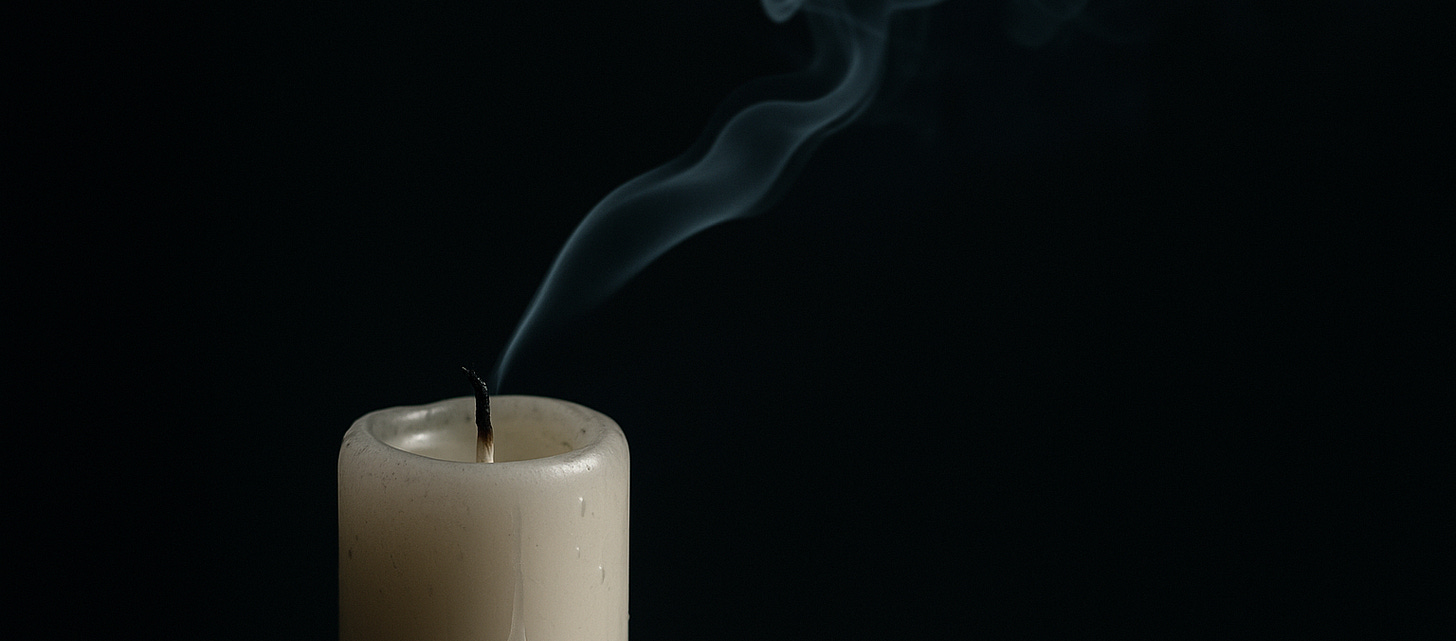Have We Lost Our Soul?
CHARLIE KIRK AND THE DEATH OF COMPASSION
It was mid-day, and I was sitting in the Salt Lake airport when my phone lit up. Just twenty miles away, Charlie Kirk had been shot in front of a live crowd.
The terminal buzzed with people ordering coffee and jockeying for seats at their gates. But I sat frozen, staring at a headline announcing the violent death of a man who’d become one of the most polarizing figures in American Christianity.
I respected Charlie Kirk.
Did I agree with him? Not always.
But that’s not the point.
The Voices That Rose Immediately
Even before I scrolled social media, I knew what the responses would sound like.
From one corner—the faithful conservative. Bible close at hand. Flag out front. Fox News playing in the background. Shocked and grieving. Charlie was one of theirs, a warrior who spoke their language. To them, his death felt like losing a brother.
From the other corner—the justice-driven progressive. Outspoken about equity. Weary of Kirk’s rhetoric. Focused on the division and the soundbites. But even they couldn’t dismiss the brutal image of his two kids watching their father collapse.
Two voices. Two instincts. Both real. Both fractured.
When Grief Turns Artificial
Here’s what troubles me. We don’t know how to grieve authentically anymore.
Real grief just shows up. It’s raw. Messy. Honest. It doesn’t ask permission from your politics. But what I watched happen in the hours after Kirk’s death was different.
We issued disclaimers before we cried.
We added footnotes to our empathy.
We clarified our positions before we prayed.
That isn’t compassion—it’s performance. It’s grief manufactured for the crowd.
Kirk was simple. And complicated. He angered many, inspired others, and provoked strong reactions. But when we can’t even allow ourselves to mourn the humanity of someone we opposed, we’re no longer authentic. We’re artificial.
The Vigils That Turned Ugly
By nightfall on September 10, prayer vigils popped up around the country. Candles flickered. Strangers held hands. Hymns filled the air. Tears flowed freely.
And then came the interruptions. Protestors showed up—not just with signs, but with shouts and cheers celebrating his death. They drowned out the prayers with taunts.
That moment struck me harder than the headline itself.
Not because I believed everyone should admire Charlie Kirk. But because we couldn’t even give space for mourning. We turned a moment for the soul into another spectacle.
If you despised the man, fine—say your piece tomorrow. But when kids are burying their father and a wife is trying to hold her world together, maybe the most radical thing you can do is let silence breathe.
What We’re Really Losing
This isn’t just about Charlie Kirk. It’s about us.
When our first reflex is to decide whether a death is “worth” our grief, we’ve stopped seeing people as people. We’ve turned them into avatars of our ideologies—props in our culture war.
That isn’t justice. That’s dehumanization.
And worse—it’s the slow erosion of our soul.
Because the soul is where compassion lives.
The soul is where empathy refuses to be silenced.
The soul is what keeps us human in a world that constantly tempts us to be artificial.
So here’s the blunt truth: If your theology makes it easier to justify a death than to mourn one, it isn’t Christian. And if your politics demand more loyalty than your humanity does, your politics have become your god.
The moment we sneer at tragedy instead of feeling it, we’ve lost more than our civility. We’ve lost part of our soul.
Choosing Authenticity Over Artificiality
There’s a way to be right that makes us wrong.
A way to pursue justice that forgets mercy.
A way to stand for justice so sharply it severs our ability to love.
The way of Jesus was never about choosing sides. It was about stepping into the gap between them. It was about authenticity—the courage to stay human when everyone else is performing.
Authentic love doesn’t mean agreement. It means recognition. Consideration. It means refusing to let ideology strip away the imago Dei in another human being—even one you could not stand. So no—you don’t have to canonize Charlie Kirk. You don’t have to rewrite his legacy. You don’t have to betray your convictions.
But you can choose to feel instead of perform.
You can choose honesty over spin.
You can admit this is a tragedy.
Maybe the greatest loss isn’t political at all. Maybe the real question is whether we’ve traded authenticity for something artificial—and in the process, lost our soul. ◼︎



It was about authenticity—the courage to stay human when everyone else is performing.
That earned a subscribe. Wonderful.